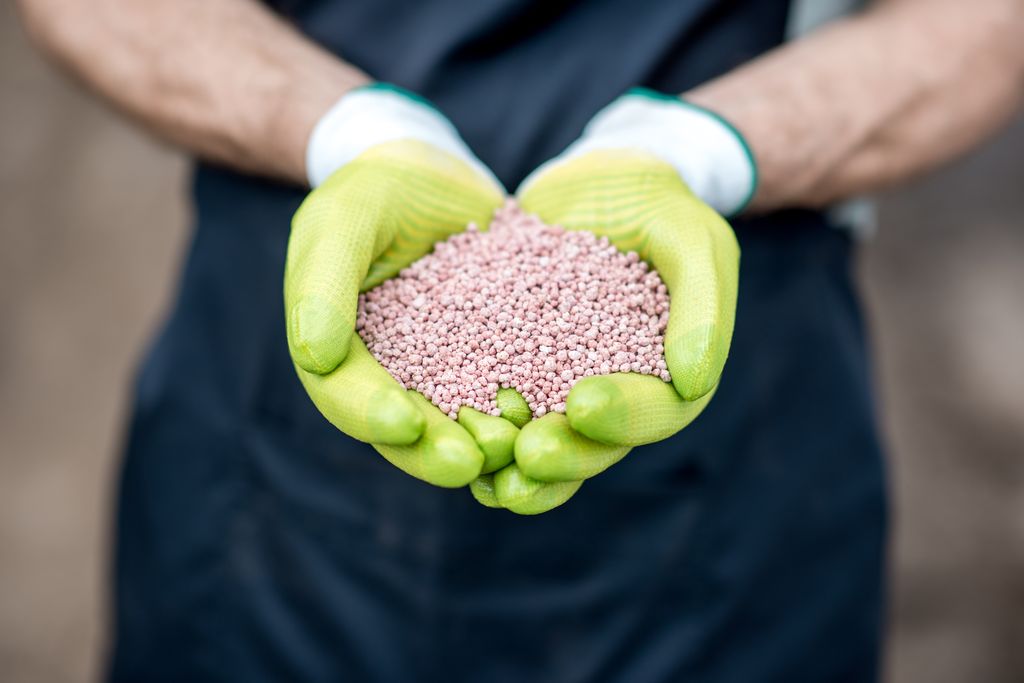When it comes to lawn fertilization, homeowners often find themselves at a crossroads: should you go for organic fertilizers or stick with synthetic ones?
Choosing the right fertilizer is crucial not only for the health and beauty of your lawn but also for the environment.
We’ll study the differences between organic and synthetic fertilizers, helping you make an informed decision for your lush green space.
This post contains affiliate links. As an Amazon Associate, I earn from qualifying purchases at no additional cost to you.
Understanding the Basics
Before we jump into the comparison, let’s briefly understand what each type of fertilizer is:
- Organic Fertilizers: These are derived from natural sources such as plant materials, animal waste, and minerals. They enrich the soil and improve its health over time.
- Synthetic Fertilizers: Also known as chemical fertilizers, these are manufactured using industrial processes. They contain concentrated nutrients that can provide quick results.
Key Differences Between Organic and Synthetic Fertilizers
| Criteria | Organic Fertilizers | Synthetic Fertilizers |
|---|---|---|
| Source | Natural materials | Chemically manufactured |
| Nutrient Release | Slow release | Fast release |
| Soil Health | Improves soil structure and microbial activity | May degrade soil health over time |
| Environmental Impact | Lower risk of pollution | Higher risk of runoff and pollution |
| Cost | Generally higher initial cost | Typically lower initial cost |
Benefits of Organic Fertilizers
Choosing organic fertilizers comes with several benefits that appeal to both your lawn and the environment:
- Soil Health: Organic fertilizers improve soil structure, increase water retention, and promote beneficial microbes. This means healthier grass that can withstand stress better.
- Reduced Chemical Exposure: If you have pets or children, organic options are safer as they contain fewer toxic substances.
- Long-Lasting Effects: While they may take longer to show results, organic fertilizers often provide nutrients for an extended period, promoting gradual and sustained growth.
Benefits of Synthetic Fertilizers
On the other hand, synthetic fertilizers also have their unique advantages:
- Quick Results: Need a quick green-up? Synthetic fertilizers deliver nutrients almost immediately, giving you fast results when you need them.
- Ease of Use: They are often easier to apply and require less frequent applications compared to organic options.
- Cost-Effective: Synthetic fertilizers are generally cheaper upfront, making them appealing for those on a tight budget.
Environmental Considerations
When considering lawn fertilization, keep the environment in mind.
Here are some points to ponder:
- Runoff Issues: Synthetic fertilizers can lead to nutrient runoff into waterways, contributing to algae blooms and water pollution.
- Soil Degradation: Over time, synthetic fertilizers can harm soil health by disrupting microbial balances. This can lead to a dependency on chemical inputs.
- Organic Practices: Organic fertilizers, while requiring a bit more patience, build healthy soil ecosystems and reduce environmental impact.
How to Choose the Right Fertilizer for Your Lawn
Choosing the right fertilizer depends on various factors, including your lawn’s specific needs, your budget, and your environmental values.
Here’s a simple guide:
- Assess Your Lawn: Examine the health of your grass and soil. A soil test can provide insights into what nutrients are lacking.
- Consider Your Goals: If you need a quick fix, synthetic may be the way to go. However, if you’re looking for long-term health, opt for organic.
- Budget Wisely: Factor in both upfront costs and the long-term benefits of each option.
- Think Environmentally: Reflect on your values regarding environmental impact and choose accordingly.
Application Tips for Successful Lawn Fertilization
Regardless of your choice, proper application is key to successful lawn fertilization.
Here are some tips:
- Follow Instructions: Whether organic or synthetic, always follow the manufacturer’s instructions for application rates.
- Timing is Everything: Fertilize during the growing season for best results. Early spring and fall are generally ideal times.
- Water After Application: Water your lawn after applying fertilizers to help nutrients penetrate the soil.
- Avoid Over-Fertilization: Too much fertilizer can harm your lawn. Stick to recommended amounts to avoid burning the grass.
Conclusion
In the great debate of organic vs. synthetic fertilizers, there’s no one-size-fits-all answer.
Both have their pros and cons, and the best choice for your lawn depends on your specific needs and values. By understanding the differences and considering factors such as soil health, environmental impact, and budget, you can make an informed decision that leads to a vibrant and healthy lawn.
So, whether you choose to go organic or stick with synthetic options, make sure to apply them correctly and watch your lawn thrive!
Ready to take action? Evaluate your lawn’s needs today and choose the fertilizer that works best for you!



